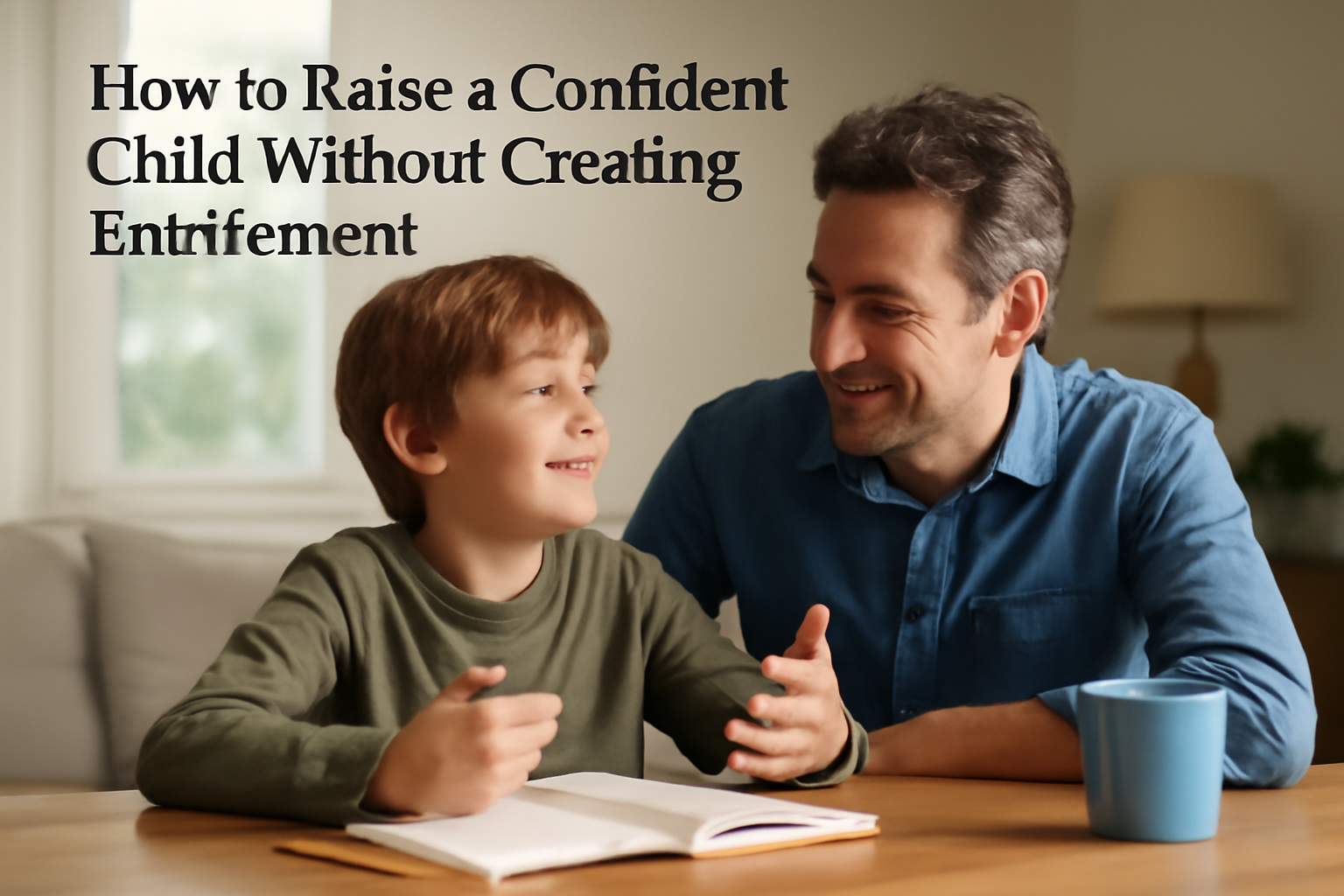Confidence helps children believe in themselves, take on challenges, and navigate life’s ups and downs. But raising a confident child isn’t about constant praise or inflated ego—it’s about building a strong sense of self-worth, competence, and resilience.
At the same time, it’s important to avoid fostering entitlement, where children expect praise, rewards, or success without effort or appreciation.
Here’s how to strike the balance: raise a child who feels capable and empowered—without becoming self-centered or dependent on external validation.
Why Confidence Matters
Confident children are more likely to:
- Take healthy risks
- Persevere through challenges
- Express their needs and ideas
- Set healthy boundaries
- Bounce back from failure
True confidence is rooted in competence—not just compliments.
Avoid Overpraising
While it’s important to encourage your child, too much generic praise can backfire. Constantly saying “You’re amazing!” or “You’re the best!” may create dependence on external approval—or unrealistic expectations.
Instead:
- Focus on effort: “You worked really hard on that.”
- Be specific: “I noticed how you stayed calm even when it got tricky.”
- Praise progress: “Look how much better you’ve gotten at this!”
This teaches kids that success comes from effort, not just talent.
Let Them Struggle (Within Reason)
Struggle builds strength. When your child faces a challenge, resist the urge to step in immediately.
Let them:
- Solve the puzzle
- Fix the mistake
- Clean up the spill
- Ask for help on their own
You can guide without rescuing. Say:
- “I believe you can figure this out.”
- “What’s another way to try it?”
- “It’s okay to feel frustrated—keep going.”
These moments build real confidence.
Teach Problem-Solving Skills
Instead of giving your child all the answers, teach them how to think through challenges.
Steps to practice together:
- Identify the problem
- Brainstorm possible solutions
- Choose one and try it
- Reflect on what worked and what didn’t
This builds independence, resilience, and self-trust.
Encourage Healthy Risks
Let your child try new things—even if they might fail. Examples:
- Joining a new club or activity
- Speaking up in class
- Riding a bike without training wheels
- Ordering at a restaurant by themselves
Support their efforts, celebrate bravery, and normalize mistakes as part of learning.
Use Constructive Feedback
Confidence doesn’t mean never receiving correction. In fact, learning how to accept feedback helps kids grow stronger.
Offer feedback with kindness:
- “This part could be even better—want to try again?”
- “Next time, what could you do differently?”
- “I noticed you rushed a bit—how can we slow down?”
Feedback isn’t criticism—it’s an invitation to improve.
Set Boundaries and Expectations
Confident kids also need structure and accountability. Don’t confuse confidence with allowing your child to do whatever they want.
- Set clear rules around behavior, chores, and screen time
- Enforce consequences calmly and consistently
- Follow through with routines and expectations
Limits provide a sense of safety—and show kids that responsibility and respect go hand in hand with confidence.
Teach Gratitude and Humility
Help your child appreciate what they have and recognize the contributions of others.
Practice:
- Saying thank you regularly
- Acknowledging help from teachers, friends, or siblings
- Talking about privileges and how not everyone has the same access
Gratitude builds empathy—and keeps entitlement in check.
Support Their Interests, Not Your Agenda
Confidence grows when kids feel free to explore their unique interests—not just what pleases their parents.
- Encourage their passions, even if they’re different from your own
- Show interest in their hobbies or creative projects
- Let them take the lead in what they enjoy
A child who feels seen and accepted for who they are is more likely to believe in themselves.
Be Their Safe Base
Ultimately, confidence is rooted in security. Your child needs to know:
- “I am loved no matter what.”
- “Even when I fail, I am supported.”
- “My worth isn’t tied to achievement.”
Be a consistent source of comfort, honesty, and unconditional love.
Because confidence built on connection is the kind that lasts.
Final Thought: Capability Without Entitlement
Confidence is not about raising kids who think they’re better than everyone—it’s about raising kids who believe in their own value and respect the value of others.
By encouraging effort, setting boundaries, allowing struggle, and modeling humility, you’re helping your child grow into someone who is strong, secure, and kind.
That’s real confidence—and it starts with you.
